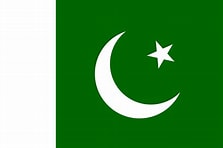India’s heart bleeds for the people of Manipur, a people we have all learnt to respect for their industriousness, zest for life and great contribution to Indian sports. I was in Imphal a year ago, visiting after 15 years. As I drove through the streets, I marvelled at the development which had taken place in the city. I cannot vouch for the other towns and rural areas but Imphal seemed to be flourishing. I have friends and batch mates from the state, from all communities, right from my days at the Indian Military Academy; great, loyal friends.
As soldiers, it breaks our hearts to see Manipur burning the way it is.
There is no need to go into the details of the background or the issues at stake today. That is well known. IT’S THE DEGREE OF HATE AND LOATHING BETWEEN THE MEITEIS AND KUKIS THAT SHOULD CONCERN ALL of us because once such sentiments enter into a regional ethnic conflict, it becomes well-nigh impossible to restore sanity. I had the opportunity to witness this in Rwanda in 1994 during the internal conflict between the Hutus and the Tutsis. In that conflict, the 90 per cent majority (Hutus) executed a massacre of genocidal proportions against the 10 per cent minority (Tutsis) but it was the latter who defeated the former in the internal military conflict that ensued. The Tutsis rule today. Yet, Hutu-Tutsi hatred is expected to come back to haunt Rwanda again and again in the future, as in the past. We cannot afford to allow the Meitei-Kuki relationship to deteriorate to such a level.
January 19, 1989, is a red-letter day in J&K’s recent history. On that day, Pakistan-sponsored proxies let loose a reign of terror against a hapless and harmless minority, the Kashmiri Pandits, to convert the region’s ideology and faith to Islam only. There was a large-scale migration of Kashmiri Pandits. TODAY OR IN THE NEAR FUTURE THEIR RETURN IS EXTREMELY DIFFICULT DUE TO THREATS, however much we may desire, as the wounds of the ethnic cleansing will not wash away for many generations. Yet, there is always hope.
There is also the example of Sri Lanka where I had the privilege to be a part of the Indian Peace Keeping Force (IPKF) in 1987-90. The Tamil-Sinhala relationship and the reluctance of the state to heed the sentiments and demands of the Tamils laid Sri Lanka to waste for 30 years. A visit to the beautiful island nation in the company of someone who knows the internal ethnic conflict will reveal the unfortunate fact that the military victory of the Sri Lankan Army in 2009 was not a resolution of the issue, which is still awaited.
I have always believed that such conflicts do not end with military or even political solutions – these are only steps in the process of achieving the ends. The ends inevitably mean a people-to-people understanding, as South Africa’s Truth and Reconciliation Commission has shown.
Now, to the pernicious practice being resorted to by segments of the communities in Manipur to prevent the security forces (SF) from operating effectively to maintain stability and order. This is fraught with danger. Hundreds of women and children turn up to block the roads and entry points to small towns and villages. This a practice that took place earlier in Manipur TOO with the full knowledge that the Indian Army will never fire at women and children and that they possess no women in their combat ranks who could deal with these situations physically.
The recent incident which was shared on social media by the Spear Corps of the Army was appreciated and criticised in equal measure. The official Twitter handle of the Spear Corps shared a video, wherein a mob of activists, mainly women, were seen surrounding the Indian Army personnel. The message of the Spear Corps read: “Women activists in #Manipur are deliberately blocking routes and interfering in operations of Security Forces. Such unwarranted interference is detrimental to the timely response by Security Forces during critical situations to save lives and property.” There were 12 detained insurgents of the KYKL group in the custody of the operational force and they were released to ease the situation and prevent any bloodshed. There has been criticism against this action with allegations of pacifism. I can vouch for the fact that very few CRITICS WOULD BE AWARE OF THE GROUND REALITIES. A response driven by machismo would have led to heavy casualties and been a blotch on the history of not only the Army’s dealings in the Northeast but also of the nation. The discretion exercised by field commanders needs must always be seen in context and with balance.
In Kashmir in 2010, when SAS Geelani threatened to surround Army camps, the then Corps Commander Lt General N C Marwah read the riot act to the separatists and this was never attempted. Hot and cold responses, in a calibrated manner, are the answer for such situations.
That is why I believe that in Manipur, the Army’s approach to the conduct of its operations is exactly what is needed. There is a leadership there that knows what it is doing. This leadership has experience of hybrid conflicts that the Indian Army has dealt with for decades. I WOULD leave it to the Indian Army, it will always find the best solutions, however great the challenge.








